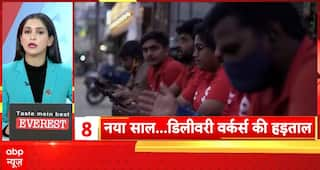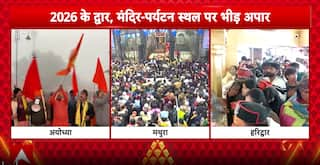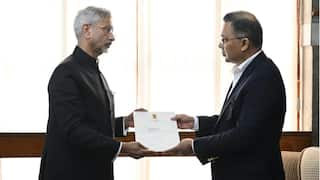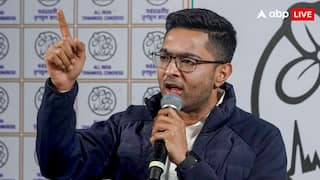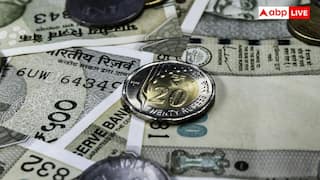Explorer
The Modern Monk: Why I wrote a book on Swami Vivekananda

Image courtesy: Wikipedia
It had not occurred to me but 9/11 had been intertwined with my life long before the Al Qaeda attack on America. I am Bengali. For most of us, September 11 marked one of the proudest days in our ethnic history. On that day in 1893, a 30-year-old man Narendranath Dutt had delivered his first speech in Chicago at the World’s Parliament of Religions which had transformed his life and, in parts at least, the Western understanding of India and the wisdom of its ancient Hindu texts.
In that speech, Vivekananda said, ‘I am proud to belong to a nation which has sheltered the persecuted and the refugees of all religions and all nations of the earth. I am proud to tell you that we have gathered in our bosom the purest remnant of the Israelites, who came to southern India and took refuge with us in the very year in which their holy temple was shattered to pieces by Roman tyranny. I am proud to belong to the religion which has sheltered and is still fostering the remnant of the grand Zoroastrian nation.’
My father, for long impressed by American enterprise, what he called ‘an ability to get things done’ as opposed to the Indian lethargy that he saw around as a civil engineer in Calcutta, brought me my first books which showed the Statue of Liberty. It is in these books that I first read the words engraved on the statue, the words of the lady with the torch:
Give me your tired, your poor, Your huddled masses yearning to breathe free, The wretched refuse of your teeming shore. Send these, the homeless, tempest-tossed to me, I lift my lamp beside the golden door!
My father nudged me towards seeing the connection between the words from Emma Lazarus’s sonnet The New Colossus and Vivekananda’s speeches. I remember him telling me that that the Indian monk reached America just a few years after the Statue of Liberty was dedicated in the New York harbor in October 1886. Apt, then, that to an America which had consecrated the ideals of its nationhood as the home for the forsaken, paradise to restart troubled lives, haven of the refugee, to such an America, Vivekananda said, ‘Sectarianism, bigotry, and its horrible descendent, fanaticism, have long possessed this beautiful earth. Had it not been for these horrible demons, human society would be far more advanced than it is now. But their time is come; and I fervently hope that the bell that tolled this morning in honour of this convention may be the death-knell of all fanaticism, of all persecutions with the sword or with the pen, and of all uncharitable feelings between persons wending their way to the same goal.’
Why was Vivekananda so successful with his message in America? Perhaps because it was giving a new range and level of philosophical, theological depth to the most fervent and quotidian desires and impulses that gave shape to American nationhood – he was telling them, my father would suggest, that even though we, the Indians, understand your yearnings for courage, liberty and refuge; Even though we are not free, we understood why you love freedom.
My parents understood the pain of losing home, and the urgency of finding shelter. They were children of refugees. Their parents had fled what is today Bangladesh when British India split into India and Pakistan. They understood what it was to be driven out, and to be welcomed or rejected. They knew the refugee instinct to see the world anew, to use a new home as a prism, a filter through which the world could be understood, accessed, even renegotiated.
But in India a few years ago, I was astonished to find some activists writing that Vivekananda a ‘hardline nationalist’, ‘authoritarian’, some seemed to be stopping just short (or not) in declaring him fascist!
For someone like me who grew up seeing how uniquely understated and scholarly the Ramakrishna Mission – the monastic order started by Vivekananda - is this was startling fare. In fact one of the most charming stories told to me soon after I joined ABP by one of the top bosses in the company was about how a monk of the Mission, after years of working to restore Vivekananda’s home in Calcutta, was transferred to a different centre the day before the renovated place would be inaugurated with ceremony. Why? Because his task was done. (Also: the 2015 Infosys Prize for mathematics was won by a monk of the order and this sort of academic excellence is commonplace in the Mission).
I also read from one particularly virulent activist that supposedly Vivekananda rejected (and denounced) his spiritual master Ramakrishna Paramhansa. Now this, purely on principles of historical authenticity, is, at best, blasphemy, at worst calumny.
The response to any written argument must always be in writing – the answer to a book is a book. And therefore here is mine – The Modern Monk.
Hindol Sengupta is Editor-at-Large, Fortune India, and the author of seven books, including the bestseller 'Being Hindu'.
Disclaimer: The opinions, beliefs and views expressed by the various authors and forum participants on this website are personal and do not reflect the opinions, beliefs and views of ABP News Network Pvt Ltd.
Follow Blog News on ABP Live for more latest stories and trending topics. Watch breaking news and top headlines online on ABP News LIVE TV
View More








